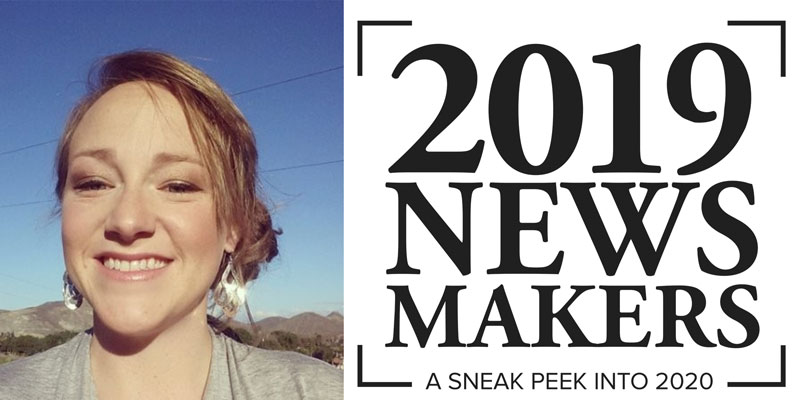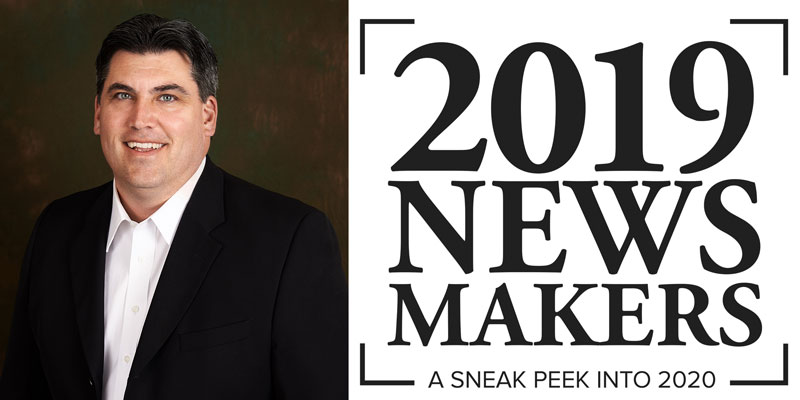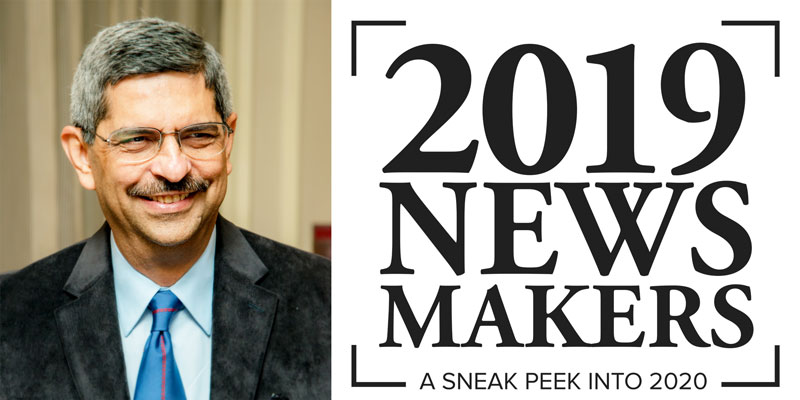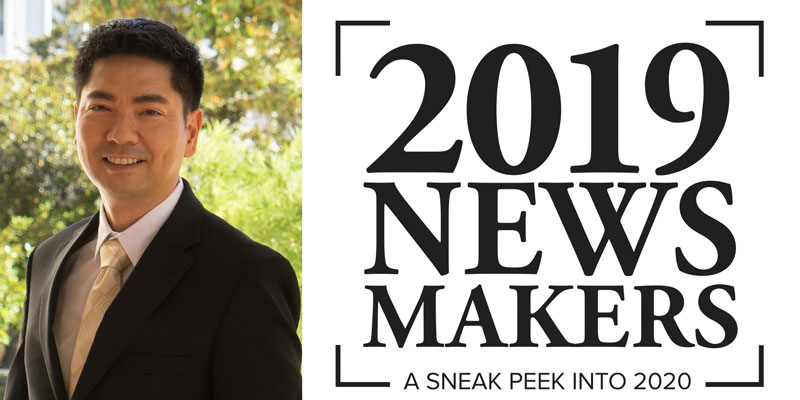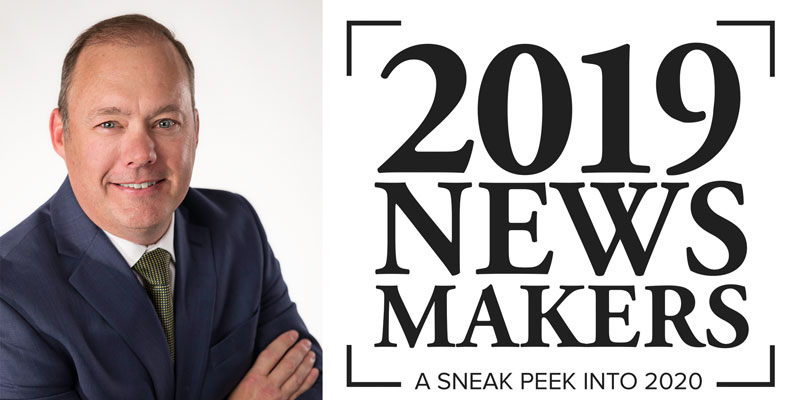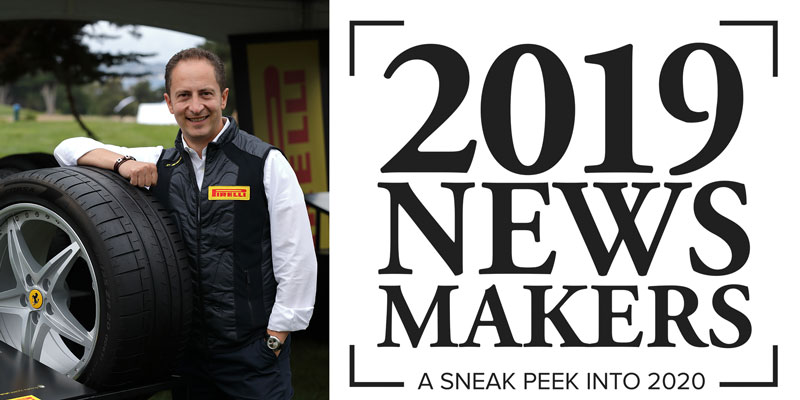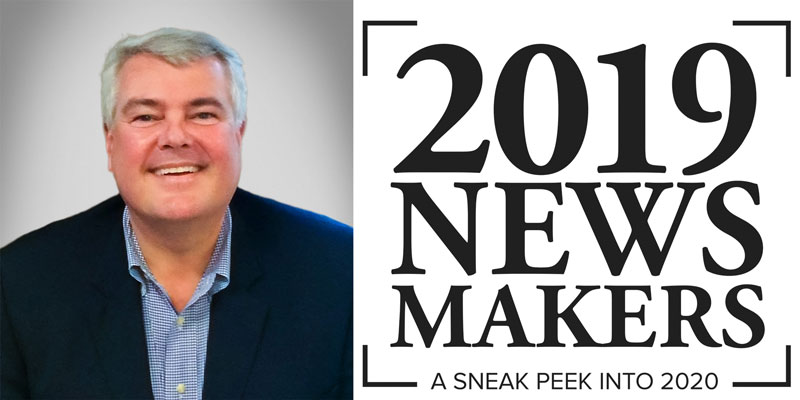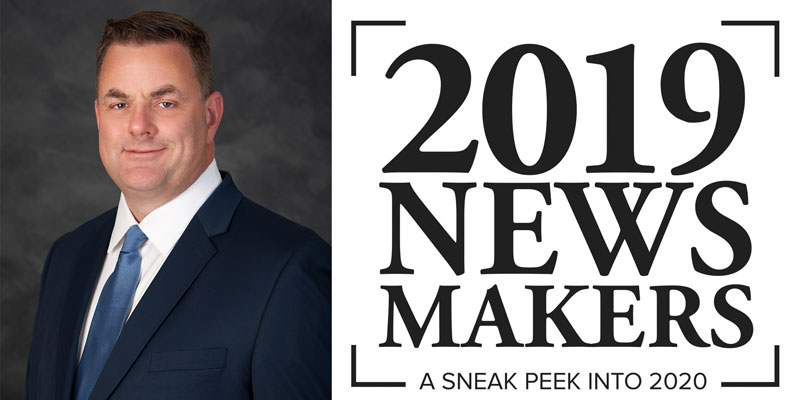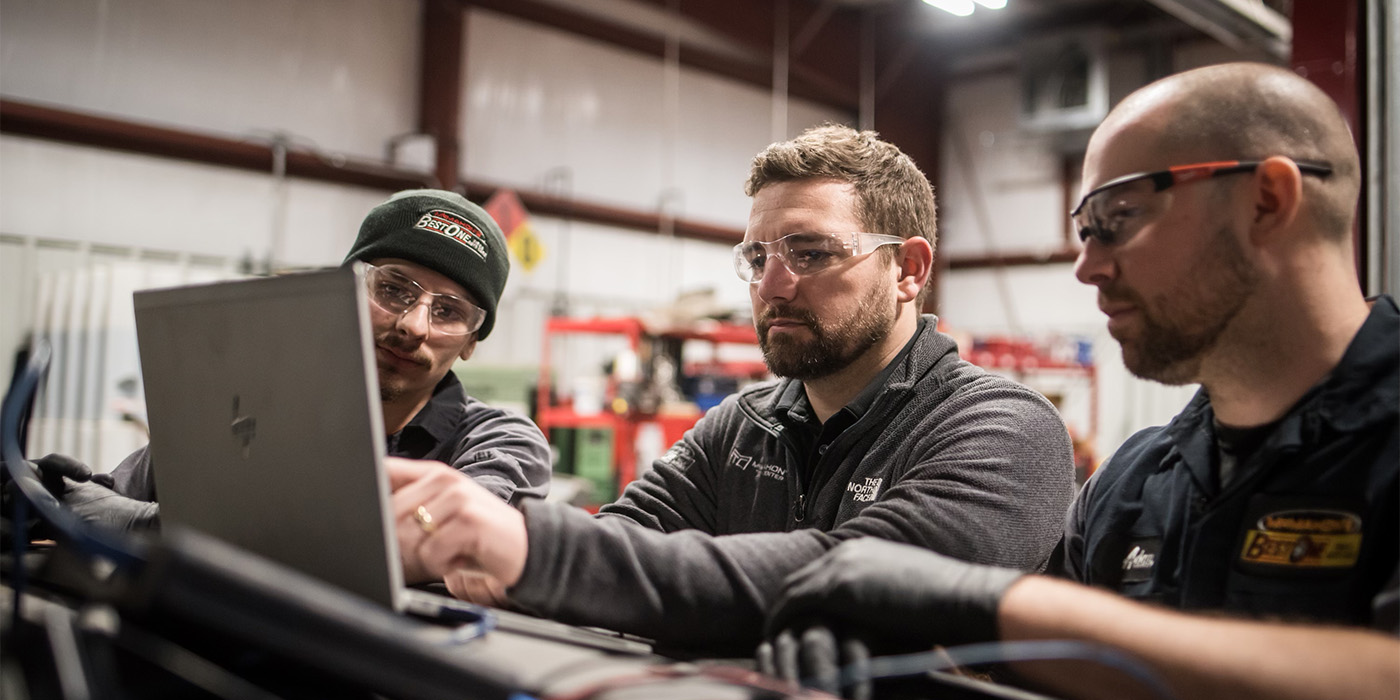To say that tire dealers are hard working is an understatement. With every Top Shop feature, every dealer profile, every article for which dealers weigh in with their experiences, we hear about the level of deep dedication held by the vast majority. Whether it’s a multi-generation family business, a brand new dealership, a one-location shop or a regional powerhouse, successful tire dealers all have one thing in common: commitment at all costs.
Much of that commitment is focused on maintaining a healthy bottom line. But with all the focus on the health of the business, sometimes it’s easy to overlook your own personal health – and that of your employees.
Healthy people can help to ensure a healthy business. Taking the steps now to safeguard your biggest asset can pay off handsomely in the long run in the form of reduced sick days, lower health insurance premiums, higher employee satisfaction, and much more.
Read on for some ways to turn 2018 into a healthy Happy New Year for your business.
Focus on Wellness
Generally speaking, there are two main benefits of workplace health initiatives: financial savings and employee satisfaction. In order to operate a successful program, business owners should focus on both.
According to Dr. Steven Aldana, CEO of WellSteps, a company that offers worksite wellness solutions, prevalent illness can greatly affect a company’s workforce.
“The obesity epidemic, the diabetes epidemic – that’s pretty tough to deal with for a lot of groups,” he says. “Productivity is probably not where it ought to be. Maybe customer service is lacking, or people are not available as much because they’re absent. So, [employers] are using programs to try to improve employee health.”
Obesity affects more than one-third of U.S. adults, according to the Centers for Disease Control and Prevention. Obesity-related conditions include heart disease, stroke, Type 2 diabetes, and certain types of cancers – some of the leading causes of preventable death.
Finances aside, Aldana points to great examples of employee wellness programs outside of the United States, where many countries have socialized medicine.
“They do wellness, but they don’t care about health care costs,” he says. “[But] that’s not why they do it. They do it for productivity. They do it for morale. They do it because it’s trying to keep track of their most valuable assets – their employees.”
Tire Dealer Initiatives
Some tire dealers do make wellness is a priority for their employees.
“Obviously, a healthier employee base helps us financially (lower group health insurance premiums, less sick time to keep efficiency up, etc.),” says David Sands, president and CEO of Lex Brodie’s Tire, Brake & Service Company, which operates five locations in Hawaii. “The bigger concern is for our employees’ entire lives. We want them to be happy and healthy both at work and in their free time.”
At Lex Brodie’s, management actively encourages all employees to monitor, care for, and improve their health through various initiatives.
Sands says the company built a full gym at its largest location and offers non-smoking and quit-smoking bonuses. It also works with both local gyms and its healthcare provider to offer discounted gym rates and lower registration fees.
“We partnered with our health insurance provider on cash incentives for vital health measurement awareness – (employees can) go see a doctor for blood pressure, cholesterol, body composition, heart rate, etc.,” Sands says. “For high risk and longtime employees, we help them purchase fitness watches and encourage them to compete with a monthly activity contest.”
Lex Brodie’s also conducts wellness contests at the store level. For example, the locations compete against one another to see which has the best wellness and attendance for the month.
“Of our 113 employees, about 60% participate in at least one of the initiatives,” Sands explains. “We don’t really think this is enough, [so we’re] coming up with new plans to get more participation. I’m not sure why 100% don’t participate – it’s easy, lucrative. And it’s good for them.”
Mike Holmes, CEO of Virginia Tire, a 13-location dealership based in northern Virginia, gives his view on health initiatives for tire dealerships.
“First of all, it’s a benefit that many full-time employees have come to expect from their employer,” Holmes said. “Through the tax code, there are tax benefits to providing wellness benefits, and we want to provide these because healthy employees are going to be happier and more productive. We believe it’s a good benefit to provide and we strongly encourage health in many different ways.”
In the last five years, Virginia Tire has made adjustments to its health plan in an effort to reduce the company’s costs, its employees’ costs, and improve overall workforce wellness.
“[Five years ago], we had declining participation. Basically, the employees with health issues remained as part of the plan, but those who were healthier [and would keep premiums lower] weren’t participating,” Holmes says. “We restructured all of the different plans and made it more attractive for people to participate. As a result, we dramatically increased the participation in our healthcare over the last five years and overall have a much healthier workforce.”
He says that for a single enrolled employee who is tobacco-free, healthcare is just $98 per month – and that healthcare premiums in general have not increased in five years.
“If you are tobacco-free, then we pay you $2,000 a year toward our healthcare plan,” resulting in a lower premium, Holmes adds.
To demonstrate its importance and to maximize participation, each of Virginia Tire’s 13 locations became tobacco-free for employees a couple years ago.
“We’re entirely tobacco-free at all of our locations,” Holmes says. “If you are a tobacco user, you have to clock out, and you have to get in your car and leave the facility entirely to smoke. One of our core values is being professional and, quite frankly, I didn’t think smoking at work was professional.”
The leadership team planned for at least six months before the transition to ensure that things would go smoothly and all concerns would be addressed. By the time the change occurred in connection with the American Cancer Society’s Great American Smokeout (held annually on the third Thursday of November), the initiative had been well communicated, according to Holmes.
“Everyone was really receptive,” he says. “Many people have thanked us for doing this, for making it a cleaner workplace, and there’s been many employees who have quit smoking since then. I’m really proud of that effort from our team.”
In addition to becoming tobacco-free, another employee wellness initiative Virginia Tire started is to pay 100% of an employee’s monthly gym membership fee – but there is a catch.
“[The employee] has to use it – if they use it 10 times or more per month, then we pay the entire amount of the gym membership,” Holmes notes.
Corporate Wellness Programs
From biometric screenings and information sessions to health programs and friendly fitness competitions, there are dozens of completely customizable wellness initiatives to fit each and every tire dealership.
The first step is to determine whether your shop has a staff person with the bandwidth to create and manage an employee wellness program or if you should partner with an outside consultant.
“It’s likely that smaller, one-location businesses aren’t going to have somebody internally to take charge of such a program; most likely they’re going to have to use a vendor – somebody that can come in and guide them and help them through that process,” says WellSteps’ Aldana.
While many wellness consultants only deal with larger companies, there are plenty of others (WellSteps included) that partner with small businesses and offer a range of options to get started.
But it doesn’t have to be a massive effort to be effective. For example, rather than creating a large, structured wellness program, a dealer could provide employees with a list of health-related activities that they can do to earn small rewards.
“You could hire a group to come in and just do biometric screenings for everybody,” Aldana explains. “Any employee who gets a screening will get $50 off their insurance premium, for example.”
Larger-sized companies might consider creating a committee or designating an individual to handle wellness initiatives.
“This is helpful because this person usually has a feel for the culture of the organization, knows what people like and what they don’t like, and it’s someone who’s there to listen and participate in benefits meetings and the program itself,” Aldana says, adding that wellness consultant firms can provide a that service for clients.
“If [a dealer does have the resources to handle the program in-house], they have to have a way to deliver it across multiple locations, or even multiple cities and states,” he says. “It becomes really fun; you’ve got the [Maryland] group going against the [Virginia] group on how many steps per week, or there’s a weight loss challenge to see which location can lose the most,” Aldana adds. “Having teams compete with each other is really good for morale.”
Keys to Success
When trying to encourage behavior change, according to Aldana there are two major factors for success: involving spouses/significant others, and offering support from management.
“Particularly in an industry that’s predominantly male, and for employees on the younger end of the spectrum, there tends to be a lack of concern for health,” he says. “They may not care, but their spouses and significant others do, so you have to reach out to them and get everyone involved. These programs are much more effective if you include the important people in their lives.”
Support from leadership – leading by example, offering enthusiasm and encouragement, etc. – is crucial, but so is the message behind any wellness initiative.
“If I’m the owner and my only concern is the bottom line and being hit really hard on healthcare cost increases for our group, and I go to my employees and say, ‘Hey, we’re getting killed on our healthcare costs; you all need to do a wellness program,’ that’s going to clearly send the wrong message,” Aldana says. “The correct way to do this, regardless of the intention, is to say, ‘you employees are the most valuable asset we have in this organization and we want you to be an active part of this company for a long time. You’re important to us, and there’s a program to help you and your spouse, or your significant other, be with us for a long time.’ This is a very different message than the bean counter message that we need to save every dime and every quarter, because the employees don’t care about that – they care about being valued,” he continues.
“If I’m an employee and I can tell that my employer really cares about me and cares about my spouse, I’m going to be more motivated – and all of a sudden my customer service gets better and my attitude gets better. It becomes a morale [booster] because my company likes me and I like them.”
The bottom line when trying to improve your own health, as well as that of your employees, is to:
1) Start small with manageable goals;
2) Ensure that management offers support and leads by example, and
3) Offer incentives that matter to employees.
“It’s really, really hard for people to change behaviors,” Aldana says. “If people can engage and enjoy it and include others – these are critical pieces to this puzzle – then we can get people to make behavior changes.”


